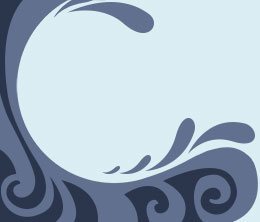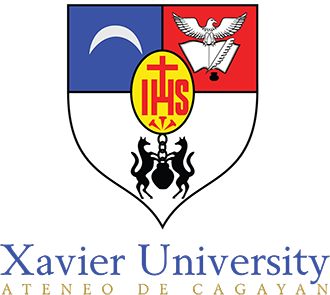
Vol 2. 2016


English Department
Editorial Board
Ma Elena Paulma, PhD
CNF and Fiction Editor
Ferdinand Cantular
Poetry Editor
Ann Catherine Acenas
Managing Editor
Contributors
CJ Sections
» Editorial
» Nonfiction
» Poetry
» Fiction
» Criticism
» Sari sari
Two Poems
by Arlene Yandug
I
Long after the facts, details seep like light through the cracks of history.
This is poetry.
Imagine a boat gliding along a stretch of sandbars.
Twenty oarsmen row quietly, slowly disappearing into a tunnel of trees.
Morning lies idle, moist on the leaves.
The boat’s name is Queen of the Seas.
In a kingdom a continent away is a fat queen named Isabella II.
She moves around the court like a ship, all sails of crinoline
hiding her barrel of a body. Her double chin quivers when she speaks.
But nobody listens.
The boatmen grip the oars, the blades slicing the river.
But the turtledoves hear not the twenty oars,
only the single polished cry of water.
The Basque looks at a parchment, brings out his binoculars:
to their left, the river of Limuay, a selvage of white hurled down to the sea.
To the right, Timaco’s hill, its green awake with the earth.
Thatched huts lie half-hidden in the mist drifting away into the canopies.
Here, litheness is everywhere: in the springiness
of macaques calling from the trees, in the trembling of leaves.
Behind the leaves, the women. Their eyes darting from one man
to another, like suns with their pulsing coronas.
II
The past repeats in your head where you think it rhymes.
Imagine the boat reaching the first village along the banks.
Inside the silken canopy, the folks take their places behind the chief,
carrying the burden of their courage: shields, spears, javelins,
iron cutlasses. Against the blades’ white silence,
the Basque enters the canopy, shakes fear from his eyes
as he might shake dust from a parchment.
A man interprets him, then words prosper slowly,
then gestures flourish in the air, the hands leaping like frogs,
then a broad array of beads, silk and combs,
all given to the chief who offers in return a bagful of pearls.
Two women emerge from a chamber, their eyes
lit by honest smiles. The bamboo floor bends like water
under their feet, skirt tassels touch their sturdy insteps
and threads of gold peek from the folds.
Food is served and talk lingers like sunset, drifts and winds
like the rio. Wine flagons go the rounds, all men touch cups.
The chief’s daughters return to their chamber,
their garments throwing iridescences on the canopies,
dancing on the Basque’s gray eyes.
Time to leave now, to sail against the current
of imagination, to row against the flow of tassels, against
the flow of combs passing through jet black hair.
III
The past in your head is poetry.
And here poetry is poetry of light: a pearl dropped
into the sea or the gold around the frogs’ eyes.
Some nights, let’s say tonight, it will be the stars
staring down at the boaters’ smallness, the moonshine
riding on plantain leaves, coruscating on the island’s body.
Meanwhile, the Queen of the Sea is now getting deeper
and deeper into the island, river by silken river.
The stars peep at someone’s thoughts, even
thoughts not yet known to himself.
Someone stares at the sky and sees the startled
lights in the eyes of the datu’s daughters.
Flame leaps somewhere in his body.
IV
A view from above: continents lie like a puzzle
meant only for clouds.
Men who haven’t gotten over a vastness
called Americas loop around islands, haunted by pearls,
the scents of cinnamon blowing
from the blue forests of Moluccas;
haunted by blackened teeth, the jujube
lips, the dark caverns of laughing mouths.
Down below, cartographers pretend to be clouds,
their quill pens grazing like rain needles on parchments,
scaling down the planet by longitude and latitude,
coloring lands, tracing the rivers’ delicate routes to the seas.
On their map is a shape of a wounded animal
arching against a body called Asia,
baying at the Queen’s peninsula three colors away.
Distance rhymes with circumnavigation, measured by guts,
the speed of dreams, galleons and galleys.
V
The past repeats in your head where you think it rhymes,
but you know it doesn’t, it doesn’t.
Today is anyone’s today.
The boat glides quietly in the water,
along a stretch of extensive sandbars.
Twenty oarsmen row it quietly towards the mouth of a river,
slowly disappearing into a tunnel of trees.
1857: Imagine watching this from the pale
distance of your century. It’s been three centuries since
Magellan, but our navigator is as wonderstruck as Pigafetta:
the morning light already writhing
cloudward from the waterway, blurring the blue
that keeps on receding before him,
coaxing him to press forward,
until he remembers not how to return.
Beyond the compass he’s holding are lives
so small they remain intractable: the ants, roused
from the ears of lilies, are scattering into the light.
On his map, yellow means colony of Spain.
The yellow archipelago is a wounded hound howling
under the solar brightness.
Let’s say it’s 1896. A brown man walks calmly to a field.
His back arches towards the same sky
before he hears the thud of his own body.
The crowd leaves, but a dog runs
to the field and whimpers
as it circumnavigates his holy body.
poetry, Carayan Vol 1. No.1 Dec 2015
© 2016 English Department, Xavier University - Ateneo de Cagayan
ISSN 2467-5679
All poems, stories and other contributions copyright to their respective authors
